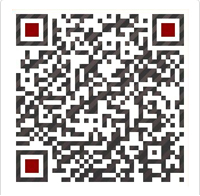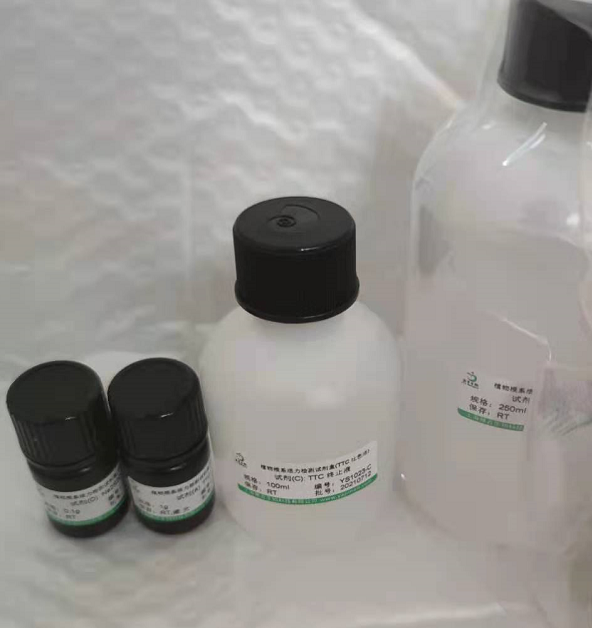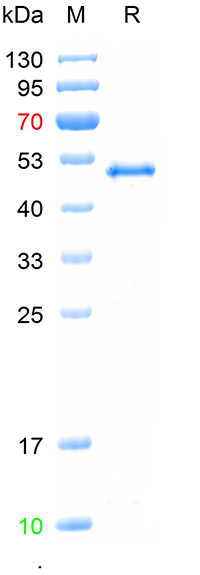| 產(chǎn)品編號(hào) | bs-43200P |
| 英文名稱(chēng) | Recombinant human C1Q protein, C-His (HEK293) |
| 中文名稱(chēng) | 重組人補(bǔ)體C1Q蛋白 |
| 別 名 | Complement C1q subcomponent subunit A; Complement C1q subcomponent subunit B; Complement C1q subcomponent subunit C; C1QA_HUMAN; C1QB_HUMAN; C1QC_HUMAN; |
| 理論分子量 | 48.4kDa |
| 性 狀 | Lyophilized or Liquid |
| 濃 度 | >0.5mg/ml |
| 物 種 | Human |
| 純 度 | >90% as determined by SDS-PAGE |
| 純化方法 | AC |
| 內(nèi)毒素 | Not analyzed |
| 表達(dá)系統(tǒng) | HEK293 cell |
| 標(biāo)簽 | C-His |
| 緩 沖 液 | PBS (pH=7.4) |
| 保存條件 | Stored at -70℃ or -20℃. Avoid repeated freeze/thaw cycles. |
| 注意事項(xiàng) | This product as supplied is intended for research use only, not for use in human, therapeutic or diagnostic applications. |
| 產(chǎn)品介紹 | C1q, a subcomponent of the classical complement pathway, is composed of nine subunits that mediate classical complement activation and thereby play an important role in the immune response. Six of these subunits are disulfide-linked dimers of chains A and B, while three of these subunits, designated C1q-A through C1q-C, are disulfide-linked dimers of chain C. The presence of receptors for C1q on effector cells modulates its activity, which may be antibody-dependent or independent. Macrophages are the primary source of C1q, while anti-inflammatory drugs as well as cytokines differentially regulate expression of the mRNA as well as the protein. However, its ability to modulate the interaction of platelets with collagen and immune complexes suggests C1q influences homeostasis as well as other immune activities, and perhaps thrombotic complications resulting from immune injury. Defects in C1q-A, C1q-B and C1q-C cause inactivation of the classical pathway, leading to a rare genetic disorder characterized by lupus-like symptoms. SWISS: P02747 Gene ID: 712 |
| 產(chǎn)品圖片 | |
我要詢價(jià)
*聯(lián)系方式:
(可以是QQ、MSN、電子郵箱、電話等,您的聯(lián)系方式不會(huì)被公開(kāi))
*內(nèi)容:









